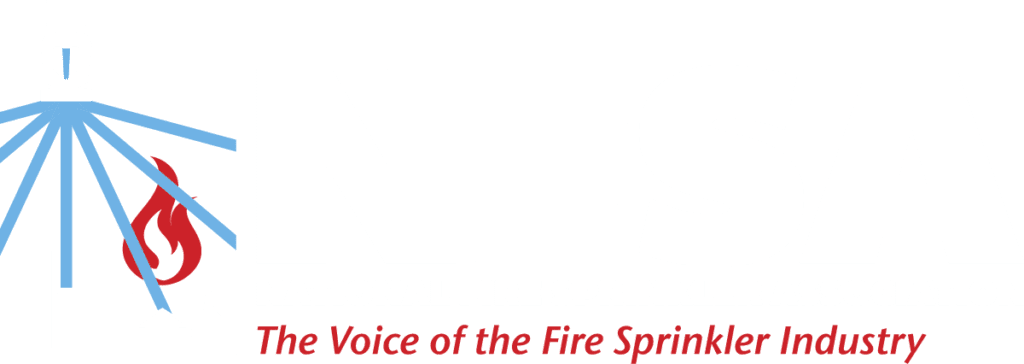Covid-19 Health Safety for Fire Sprinkler Contractors on Construction Sites

COVID-19 has changed the job site. Fire sprinkler contractors need to work with owners to identify potential risks on each site during construction activities and develop a safety plan for their employees, visitors, and inspectors. They also have to review and enhance their infection control plans to include awareness, training, and the use of personal protective equipment (PPE).
NFSA surveyed several fire sprinkler contractors in the past few days. Below are some of the practices and precautions being implemented across job sites:
- Review and adjust project schedules to allow for social distancing, including staggered work scheduling and extra shifts to physically separate employees working on site.
- Develop a written policy with provisions to inform employees and mechanisms for enforcement.
- Complete a health survey prior to entering a work site.
- Conduct job site safety briefings remotely and do not report to construction trailers.
- Provide facilities and procedures for proper disposal and removal of used cleaning and PPE supplies.
- Eliminate coffee and lunch trucks and the use of centralized gathering or eating areas. Advise employees to bring their own food, drink, and utensils.
- Encourage employees to change and wash clothes when they get home or to use onsite facilities, if available.
- Prepare additional contingency plans for a potential reduction in workforce, limited material supplies, or the need to suspend a job site for cleaning.
- Plan for maintaining job sites safely and securely during any shutdown periods, including from fires during construction and potential exposure hazards.
- Work with owners and facility managers to ensure essential ITM work is continued, systems remain in service, and impairments continue to be addressed immediately.
- Work with building and fire officials to schedule plan reviews, permitting, and field inspections.
- Review and comply with OSHA requirements for employers to prevent exposure to the virus, including PPE standards requiring gloves, goggles or safety glasses, face protection, and respiratory protection.
The CDC has not made specific recommendations for the construction industry regarding COVID exposures; however, the
The CDC has not made specific recommendations for the construction industry regarding COVID exposures; however, the published best practices include:
- Monitor and follow WHO/CDC/OSHA recommendations:
- Monitor and follow federal, state, and local government recommendations.
- Practice social distancing as recommended by the CDC, including maintaining a six-foot distance, no shaking hands, no gatherings of more than ten people, covering the mouth and nose when sneezing or coughing, and avoiding touching your face.
- Stay home if you are sick.
- Provide a process to recognize and remove sick employees.
- Provide facilities for and encourage frequent hand washing and sanitizing.
- Allow and encourage employees to work from home where possible.
- Provide additional resources and technology to assist remote employees.
- Cancel in-person meetings and shift meetings online.
- Only allow essential employees in the office and on job sites.
- Eliminate visitors.
- Eliminate travel.
- Make provisions for additional cleaning, including restrooms, equipment, tools, and commonly touched areas.
Additional COVID-19 guidelines for critical infrastructure workers
The CDC has issued new interim guidance that could affect NFSA-members that have employees working as “critical infrastructure workers” under the CISA Memorandum on Identification of Essential Critical Infrastructure Workers During COVID-19 Response. The new interim guidance applies only to “critical infrastructure workers” under the CISA memo who have potentially been exposed to COVID-19 and remain asymptomatic.
For the sake of this guidance, “exposure” means household or close contact (i.e., whether at work or any other location) within 6 feet of an individual who has been confirmed to have or is suspected of having COVID-19. This definition should extend to contact up to 48 hours before the potentially infected individual started showing symptoms.
For employers confronted only with these specific circumstances, the CDC advises that such employees may be allowed to continue working only as long as they remain asymptomatic and only if the employer implements the following five precautionary steps:
- Pre-Screen: Employers should measure the employee’s temperature and assess symptoms prior to them starting work. Ideally, temperature checks should happen before the individual enters the facility.
- Regular Monitoring: As long as the employee doesn’t have a temperature or symptoms, they should self-monitor under the supervision of their employer’s occupational health program.
- Wear a Mask: The employee should wear a face mask at all times while in the workplace for 14 days after the last exposure. Employers can issue facemasks or can approve employees’ supplied cloth face coverings in the event of shortages.
- Social Distance: The employee should maintain 6 feet distance and practice social distancing as work duties permit in the workplace.
- Disinfect and Clean WorkSpaces: Clean and disinfect all areas such as offices, bathrooms, common areas, and shared electronic equipment routinely.
Fire sprinkler contractors should stay updated on health safety recommendations for COVID-19
NFSA encourages you to continue to monitor and follow recommendations from the World Health Organization (WHO), CDC, and OSHA, as well as guidance and orders from federal, state, and local governments. You can also keep an eye on NFSA’s COVID-19 response page for the latest developments that impact the sprinkler industry.
And, of course, our members should continue to reach out to NFSA via our website or by calling 443-863-4464 for answers and support. Not an NFSA member? Join today!
For over a century, the National Fire Sprinkler Association (NFSA) has served as the voice of the fire sprinkler industry. Our mission: advocating to protect lives and property through the widespread acceptance of the fire sprinkler concept. To join NFSA or learn more about the ways membership can benefit your organization, visit nfsa.org/join.
